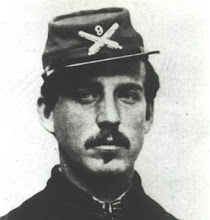According to both Muslim ambassadors and Swedish Prime Minister Fredrik Reinfeldt, Friday’s meeting concerning the printing by Swedish newspapers of artist Lars Vilks’s drawings on the theme of “Muhammad as a traffic-circle dog” went off swimmingly. Iran’s ambassador Hassan Ghashghavi told the Swedish news agency TT afterward that “the Swedish government has handled this situation well,” while Reinfeldt spoke of a “very positive dialogue.” Representatives of both sides denied that a list of Muslim demands trumpeted by Egyptian ambassador Mohamed Sotouhi Thursday had ever been presented: Reinfeldt said “There were no demands in that sense,” a denial echoed by Syria’s ambassador Mohammad Bassam Imadi: “We have no list of demands, on the contrary, we are here to bring two sides together where there is a problem.”
But given the stridency of Sotouhi’s Thursday statements to TT and his disclosure that “he and a group of fellow ambassadors had agreed” on a list of “comprehensive measures,” it is hard to see such feel-good characterizations as anything but a mendacious whitewash of what went on an official meeting from which the press was excluded. While a letter presented by the ambassadors to Reinfeldt and “obtained by” (read: “handed on a silver platter to”) the newspaper Expressen contained no demands per se, Sotouhi listed three very specific ones:
* Targeted censorship: "Muslims need legal protection against the desecration of the Prophet Muhammad."
* Sensitivity indoctrination in schools and newsrooms: "The school curriculum has to convince pupils that if they want to express their opinion they should do so in such a way that it doesn't cause offence or hurt. This should also be part of journalism training."
* Political correctness enforcers: “A permanent parliamentary committee also needs to be established to tackle Islamophobia.”
In short, the Swedish press – which didn’t generate the “Muhammad as a roundabout dog” sketches but was only doing its job by printing them with its coverage of the controversy surrounding them – must be censored, indocrinated, and monitored by a parliament whose members, this story indicates, would be only too glad to clip their wings.
If Swedish journalists want to preserve their rights, they had better do some digging to find out what really happened during Friday’s meeting. Is it really to be supposed that, having declared Thursday that “We want to see action, not just nice words,” Sotouhi and his fellow Muslim ambassadors settled the next day for nothing more than “very positive dialogue”? Did Reinfeldt agree to any of the items on Sotouhi’s wish list? Did he pass the buck to a Swedish parliament in which hostility toward freedom of the press has been documented by a professionally conducted survey? Not only the public but journalists themselves urgently need to know.


No comments:
Post a Comment